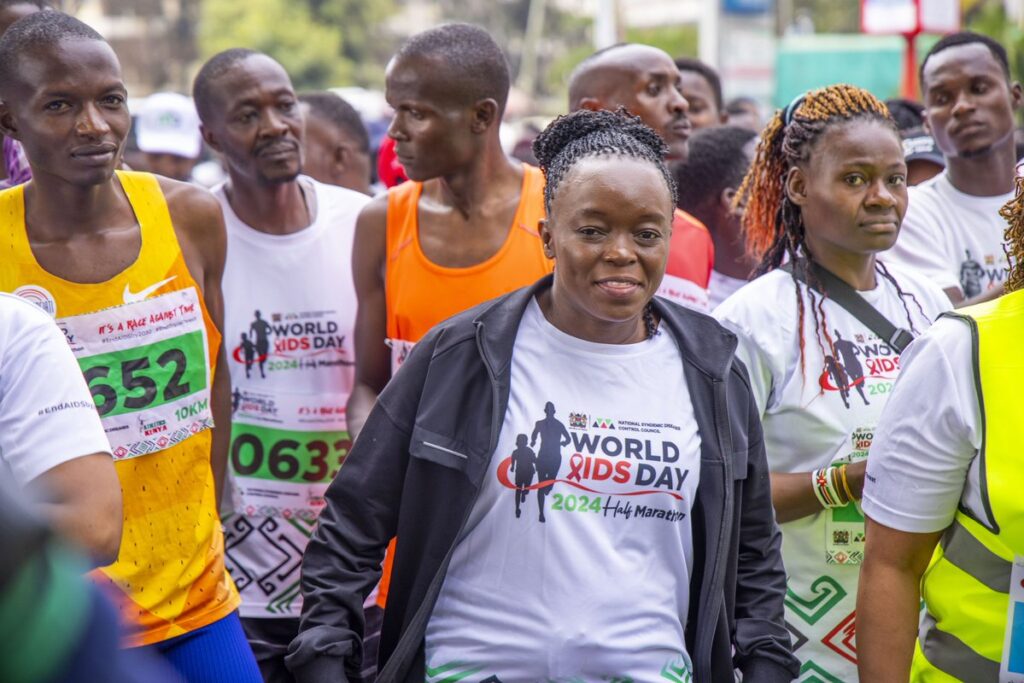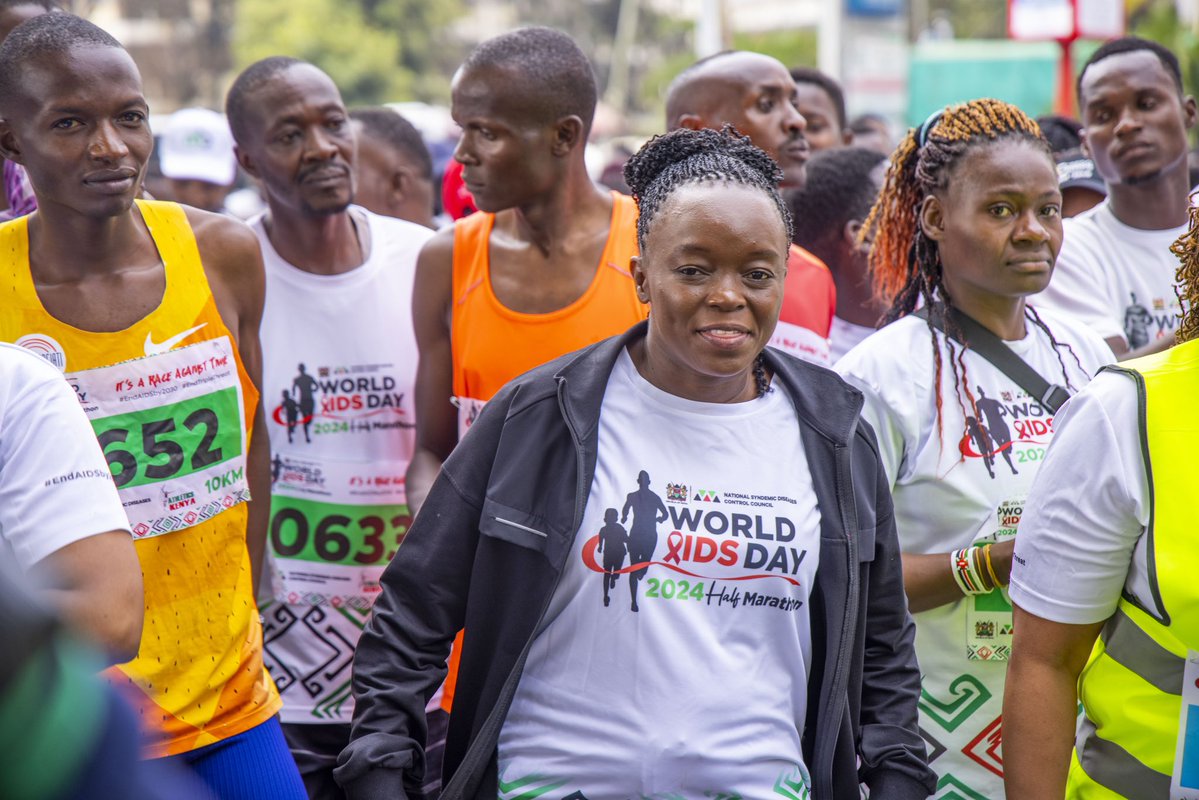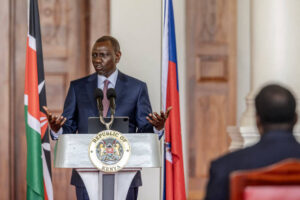
On December 1, 2024, Kenya observed World AIDS Day with a renewed call to action, reaflects commitment to eliminating HIV as a public health threat.

The national event took place at Nyayo Stadium in Nairobi, where government officials, healthcare leaders, and key partners gathered to mark the occasion and reflect on the progress made in combating HIV and AIDS. The Day served as a reminder of the ongoing efforts required to achieve a future free from the HIV epidemic.
The event was attended by several distinguished individuals, including Dr. Deborah M. Barasa, the Cabinet Secretary for Health, along with Principal Secretaries Mr. Harry Kimtai, who oversees Medical Services, and Ms. Mary Muthoni, responsible for Public Health and Professional Standards. Also present was Dr. Patrick Amoth, the Director General for Health, alongside a range of partners dedicated to the HIV response in Kenya. These officials gathered to celebrate the achievements made while also acknowledging the challenges that remain.
In her address, Dr. Barasa emphasized the essential role of men and boys in the fight against HIV. She urged them to take an active part in dismantling the stigma surrounding HIV, promoting healthier behaviors, and spearheading efforts within communities. Dr. Barasa stressed that the fight against HIV is a collective responsibility, highlighting the need for men and boys to act as agents of change in both awareness campaigns and health practices.
Dr. Barasa’s remarks were grounded in the progress Kenya has made in the battle against HIV. By the end of 2023, 98% of adults living with HIV in Kenya were receiving treatment, and 97% had achieved viral suppression. This achievement is a testament to the country’s expanded healthcare infrastructure and access to antiretroviral therapy. Over the past decade, new HIV infections in Kenya have decreased by 83%, while AIDS-related deaths have dropped by 64%.
Despite these encouraging numbers, Dr. Barasa acknowledged that several challenges persist. She pointed out the ongoing care gaps, particularly for children, young people, and men, who are disproportionately affected by the virus. These groups continue to face barriers in accessing the care and services they need, which impedes the overall goal of eliminating HIV transmission and reducing related deaths.
In addition to addressing these care gaps, Dr. Barasa outlined Kenya’s strategic vision for the future of its HIV response. She highlighted the goal of achieving a self-reliant HIV response by 2030. This ambitious plan involves further strengthening the healthcare system, incorporating more innovative solutions, and ensuring that resources are used efficiently to sustain the country’s progress in managing HIV.
One of the key innovations in Kenya’s HIV strategy is the introduction of long-acting injectable cabotegravir for HIV prevention. This development is transforming the country’s approach to HIV care, offering individuals a new, more effective option for prevention. The adoption of this treatment is part of Kenya’s broader efforts to implement cutting-edge solutions that can help curb the spread of HIV and provide more options for those at risk.
Dr. Barasa also reiterated Kenya’s commitment to Universal Health Coverage (UHC), a cornerstone of the government’s health agenda. She stressed the importance of ensuring that every Kenyan, regardless of their location or economic status, has access to quality healthcare services. The government’s goal is to leave no one behind, particularly those in underserved or remote areas, ensuring that the benefits of progress in healthcare are distributed equitably across the population.
The commitment to UHC aligns with the country’s broader health policy framework, which focuses on making healthcare more accessible and affordable for all. Dr. Barasa emphasized that the fight against HIV requires not just the provision of medical care but also addressing social determinants of health, such as poverty and education, to truly eradicate the epidemic. Access to healthcare must be seen as a right for every citizen, regardless of their socio-economic background.
As Kenya continues its journey towards the goal of ending HIV as a public health threat, Dr. Barasa’s speech highlighted both the achievements and the ongoing work that remains. The country’s HIV response is seen as a model for other nations in sub-Saharan Africa, and its focus on innovation, equity, and community involvement provides a strong foundation for the future. Kenya’s commitment to combating HIV, alongside its broader health initiatives, will remain vital as the nation works towards a healthier future for all its citizens.






